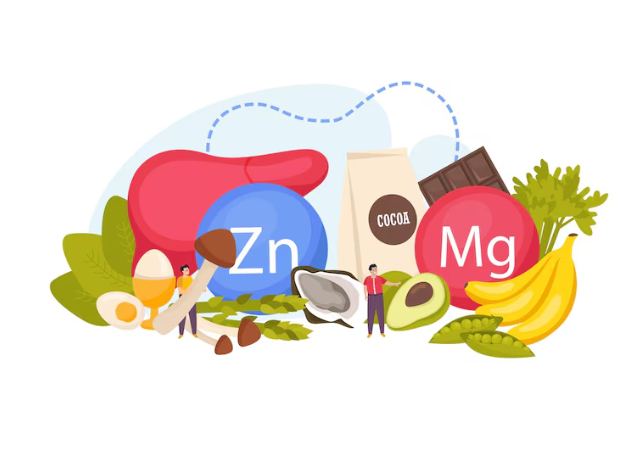Introduction to Tyrosine
Tyrosine is a non-essential amino acid, which means that the human body can synthesize it from another amino acid called phenylalanine. It plays a critical role in the production of several important substances, including neurotransmitters such as dopamine, norepinephrine, and epinephrine. These compounds are essential for regulating mood, cognition, and overall mental health. In essence, tyrosine serves as a precursor for these neurotransmitters, indicating its significance in maintaining psychological well-being.
Additionally, tyrosine contributes to the synthesis of hormones that regulate various bodily functions. For example, it aids in the production of thyroid hormones, which are vital for metabolism and energy balance. Furthermore, the importance of tyrosine extends beyond neurotransmitter production, as it is also involved in the formation of melanin, the pigment responsible for coloration in skin and hair. This multifaceted role of tyrosine highlights its significance in both physical and mental health.
Research suggests that adequate levels of tyrosine can support cognitive functioning, especially during stressful situations. Individuals exposed to stressors may have increased demands for this amino acid, as low levels can negatively impact mood and cognitive performance. Therefore, incorporating foods high in tyrosine into one’s diet can help bolster mental clarity and emotional resilience. Sources of tyrosine include various protein-rich foods such as meat, fish, eggs, dairy products, nuts, and seeds. By consuming a balanced diet rich in these foods, individuals can ensure sufficient tyrosine intake to support brain health and overall well-being.
The Science Behind Tyrosine
Tyrosine is a non-essential amino acid that plays an integral role in numerous biochemical processes within the body. It is synthesized from another amino acid, phenylalanine, which is typically obtained through a diet rich in protein. The conversion of phenylalanine into tyrosine occurs via the enzymatic action of phenylalanine hydroxylase. Once synthesized, tyrosine can be utilized by the body to produce several critical neurotransmitters that are vital for maintaining optimal mental health and cognitive function.
The most significant neurotransmitters derived from tyrosine include dopamine, norepinephrine, and epinephrine. These neurotransmitters have a profound impact on various psychological and physiological functions. For example, dopamine plays a crucial role in mood regulation, motivation, and pleasure, whereas norepinephrine is involved in the body’s fight-or-flight response, impacting stress levels and arousal. Epinephrine, also known as adrenaline, further contributes to the regulation of cardiovascular functions and energy mobilization. Thus, the presence of adequate levels of tyrosine in the diet can significantly influence mental performance and emotional health.
Foods high in tyrosine are essential for individuals looking to enhance their cognitive performance and stabilize their mood. Consuming a well-rounded diet that includes these foods can help ensure that the body has sufficient levels of this amino acid to support neurotransmitter production. Some common sources of tyrosine include dairy products, meat, fish, nuts, and soy products. It is noteworthy that individuals experiencing stress or fatigue may benefit from a diet rich in tyrosine, as these dietary components can help mitigate the negative effects of both physical and mental stressors.
In conclusion, understanding the synthesis of tyrosine and its role in the formation of neurotransmitters elucidates the importance of incorporating foods high in tyrosine into one’s diet for enhanced mental well-being and cognitive function.
Benefits of Tyrosine-Rich Foods
Tyrosine is an amino acid that plays a crucial role in the production of neurotransmitters, which are essential chemicals for brain function and mood regulation. Consuming foods high in tyrosine may offer several significant health benefits. One of the primary advantages is the potential for improved cognitive performance. Research indicates that a diet rich in this amino acid can enhance mental clarity and focus, particularly during challenging situations, such as sleep deprivation or stress. Individuals who incorporate tyrosine-rich foods into their diet may find that their ability to think critically and make decisions improves markedly.
Additionally, tyrosine has been linked to reduced stress levels. It is believed that this amino acid assists in the regulation of stress hormones, enabling individuals to cope better under pressure. This can be particularly beneficial for students and professionals who regularly encounter high-stress environments. By including tyrosine-rich foods in their diet, individuals may experience a greater sense of calm and resilience in difficult circumstances.
The mood-enhancing properties of foods high in tyrosine cannot be overlooked. Tyrosine contributes to the synthesis of dopamine and norepinephrine, neurotransmitters that play key roles in mood regulation. As a result, incorporating these nutrient-dense foods into one’s diet may help alleviate feelings of depression and anxiety, promoting overall emotional well-being. This effect may be particularly relevant for individuals diagnosed with certain health conditions, such as Attention Deficit Hyperactivity Disorder (ADHD) or major depressive disorder.
Incorporating tyrosine-rich foods into daily meals not only supports cognitive performance and stress management but also fosters a positive mood, making it a worthwhile consideration for those seeking to enhance their mental health and overall quality of life.
List of Foods High in Tyrosine
Tyrosine, an amino acid that plays a critical role in the production of key neurotransmitters, is found in a variety of foods. Understanding which foods are particularly high in tyrosine can help individuals optimize their diets for improved cognitive function and overall mental health. Below is an overview of various food categories that are rich in tyrosine, alongside their approximate tyrosine content per serving.
1. Meats: Lean meats are among the richest sources of tyrosine. For instance, turkey contains about 1,400 mg of tyrosine per 3-ounce serving, while chicken provides approximately 1,200 mg in the same portion. Beef and pork also contribute significantly to dietary tyrosine intake.
2. Dairy Products: Dairy is another excellent category for those seeking foods high in tyrosine. A cup of low-fat cottage cheese offers around 1,500 mg of tyrosine, while milk and yogurt contain between 400 to 600 mg per cup, depending on the fat content.
3. Nuts and Seeds: Nuts and seeds are not only healthy snacks but also substantial sources of tyrosine. For example, pumpkin seeds provide approximately 600 mg in a 1-ounce serving. Similarly, almonds deliver about 300 mg per ounce, making them a great option for enhancing your tyrosine intake.
4. Beans: Legumes are rich in both protein and tyrosine. Soybeans boast an impressive 1,200 mg per cup when cooked, while other beans like lentils and black beans are also good sources, providing around 350 mg per cup.
5. Whole Grains: Whole grains not only serve as healthy carbohydrates but also contribute tyrosine to the diet. Oats contain around 300 mg of tyrosine per cooked cup. Similarly, quinoa and brown rice provide about 200 to 250 mg of tyrosine in a 1-cup serving.
Incorporating a variety of these foods high in tyrosine into your daily diet can help support brain function and overall well-being. Careful attention to dietary choices can facilitate a balanced intake of this important amino acid.
How to Incorporate Tyrosine-Rich Foods into Your Diet
Incorporating foods high in tyrosine into your daily meals can significantly enhance your mental clarity and overall well-being. A variety of tyrosine-rich foods is available and can easily be integrated into various meals throughout the day. To start with breakfast, consider including eggs, which are not only a good source of protein but also contain considerable amounts of tyrosine. A simple omelet with spinach and cheese can provide a flavorful way to commence your day while boosting your intake of this amino acid.
For those who prefer a lighter breakfast, Greek yogurt topped with nuts and seeds—such as pumpkin or sunflower seeds—offers another excellent option. The yogurt supplies probiotic benefits, while the seeds contribute additional tyrosine and healthy fats. Smoothies can also be a creative avenue to explore; a blend of bananas, avocado, and protein powder can yield a delicious drink that serves both taste and nutrition.
When it comes to snacks, consider munching on edamame or roasted chickpeas, both of which are high in tyrosine and provide substantial energy. Alternatively, a homemade trail mix containing almonds, walnuts, and dried fruits can keep your cravings at bay while promoting brain health. These snacks are versatile and can be easily prepared for on-the-go consumption.
For lunch and dinner, you might want to focus on incorporating tyrosine-rich proteins such as chicken, turkey, or fish. A grilled chicken salad with mixed greens, cherry tomatoes, and a light vinaigrette fosters both a nutrient-dense meal and a boost in tyrosine. Similarly, a stir-fry loaded with tofu, broccoli, and bell peppers can provide an excellent source of plant-based tyrosine. By strategically including these foods high in tyrosine throughout your day, you can enhance your mental acuity and overall health effectively.
Potential Risks and Considerations
While tyrosine can be beneficial for cognitive function and overall well-being, it is essential to consider potential risks associated with excessive intake. One significant concern is the interaction of tyrosine-rich foods with certain medications. Individuals taking monoamine oxidase inhibitors (MAOIs) or certain antidepressants should exercise caution, as increased levels of tyrosine can lead to elevated blood pressure and other adverse reactions. Additionally, those on medications for thyroid issues may also need to monitor their tyrosine consumption, given that high levels can influence thyroid hormone production.
Another area of concern pertains to high-protein diets, which often coincide with increased consumption of foods high in tyrosine. While protein is vital for many bodily functions, an excessive intake can strain the kidneys, particularly in people with pre-existing kidney conditions. Therefore, it is crucial for individuals with such conditions to consult healthcare professionals regarding protein and tyrosine levels within their diets.
Moreover, specific health conditions warrant a careful approach to tyrosine consumption. Certain metabolic disorders, such as phenylketonuria (PKU), require a tyrosine-restricted diet. In these cases, prolonged high levels of tyrosine consumption can lead to imbalances and associated health issues. Thus, individuals diagnosed with metabolic disorders should adhere to dietary guidelines provided by their healthcare providers.
In light of these considerations, it becomes evident that while enhancing cognitive performance through tyrosine-rich foods can be beneficial, it is equally important to approach such dietary changes with mindfulness. Discussing any planned dietary modifications with a healthcare professional is advisable to ensure optimal health outcomes.
Supplements vs. Food Sources
Tyrosine is an amino acid that plays a crucial role in the synthesis of neurotransmitters, which are vital for cognitive function and mood regulation. When considering the avenues to increase your intake of tyrosine, it is essential to evaluate both supplements and natural food sources. While tyrosine supplements are readily available and can provide a quick boost, they may not be as beneficial as consuming foods high in tyrosine.
Supplements often provide a concentrated dose of tyrosine, which can be particularly effective for individuals facing specific challenges, such as those involved in intense physical activities or chronic stress. However, the bioavailability of tyrosine from supplements varies, depending on the individual’s metabolism and the formulation of the product. In many cases, the body may absorb nutrients more effectively from whole food sources, where tyrosine is combined with other beneficial compounds that aid absorption and utilization.
Foods high in tyrosine—such as chicken, turkey, fish, dairy products, nuts, and certain legumes—offer a broader range of nutrients, including vitamins and minerals that support overall health. Additionally, consuming whole foods can provide a sustained release of amino acids, promoting prolonged energy levels and cognitive performance. Whole food sources not only enhance tyrosine intake but can also contribute to a well-rounded diet that is vital for mental well-being.
In some cases, supplementation might be necessary, particularly for individuals with specific dietary restrictions or health concerns that impede adequate intake from food sources. When considering this route, it is essential to consult with a healthcare professional to determine the appropriate dosage and ensure safety. Ultimately, while supplements can serve as a convenient alternative, focusing on consuming rich food sources is generally the preferable approach for increasing your tyrosine levels.
Tyrosine and Mental Health
Tyrosine, an amino acid that plays a critical role in the production of neurotransmitters, has been increasingly recognized for its potential impact on mental health. Research suggests that maintaining adequate levels of tyrosine in the diet can help manage a variety of mental health conditions, such as stress, anxiety, and depression. Foods high in tyrosine are abundant and accessible, making it relatively easy to incorporate them into a daily diet.
Studies have demonstrated that tyrosine supplementation may improve cognitive flexibility and performance during periods of stressful situations. Stressful environments can deplete the body’s supply of neurotransmitters, particularly dopamine and norepinephrine. By consuming foods rich in this amino acid, individuals may effectively enhance their resilience to stress. For instance, sources like chicken, fish, dairy products, and soybeans are reported to be sufficient in supporting the brain’s neurotransmitter production, potentially aiding in significant reductions in stress levels and enhancing overall mood.
Moreover, research indicates that individuals suffering from anxiety and depression may benefit from diets that are high in tyrosine. A study published in a prominent psychology journal highlighted that participants who included more tyrosine-rich foods in their nutritional regimen reported lower levels of anxiety and an overall improvement in their emotional well-being. Tyrosine may help modulate the brain’s response to stress, thereby contributing to a better mental health outcome. Additionally, since tyrosine is involved in the synthesis of thyroid hormones, it can also play a role in mood regulation, further reinforcing its importance in dietary considerations for mental health management.
As such, integrating foods high in tyrosine into one’s diet can have a positive influence on mental health, providing a natural approach to mitigate symptoms of stress, anxiety, and depression. It is crucial to explore these dietary interventions further, enabling a broader understanding of their role in mental wellness.
Conclusion
Incorporating foods high in tyrosine into one’s diet can play a significant role in enhancing mental function and overall well-being. Tyrosine, an amino acid that serves as a precursor to important neurotransmitters such as dopamine, norepinephrine, and epinephrine, is crucial for brain health and cognitive performance. By consciously including tyrosine-rich foods—such as dairy products, soy products, nuts, seeds, and meats—individuals can potentially improve their mood, cognitive abilities, and stress response.
Additionally, a well-rounded diet that provides ample amounts of tyrosine can facilitate improved focus and motivation, especially during periods of stress or fatigue. The relationship between a balanced intake of tyrosine and effective brain function underscores the relevance of dietary choices in one’s mental resilience. Consuming a variety of foods high in tyrosine is not only beneficial for mental acuity but may also contribute positively to emotional stability, thus highlighting the importance of monitoring one’s diet.
It is worth noting that the benefits of tyrosine are maximized when consumed as part of a balanced diet, complemented by other essential nutrients. Integrating tyrosine-rich foods into daily meals can be simple and effective, allowing individuals to support their cognitive health while enjoying a diverse array of flavors. As awareness of mental health continues to grow, recognizing the impact of nutrition, particularly tyrosine intake, is increasingly essential.
Ultimately, understanding the role of tyrosine in supporting cognitive and emotional health empowers individuals to make informed dietary choices. By prioritizing foods high in tyrosine, you are not only nurturing your mind but also fostering a holistic approach to your well-being.






















+ There are no comments
Add yours